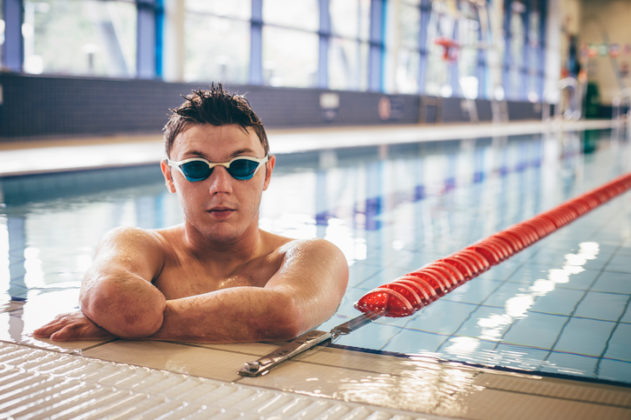For everything I can’t do, there are a dozen other things I can. The difference is that society has taught me to value productivity over character.
There’s never been a time I didn’t know I was different — or at least not one I can remember. As an infant, I instinctively reached for things with my fingerless right hand and screamed when I couldn’t grasp them. But I don’t remember the frustration or rage that comes with losing something my brain expected to be there.
I never struggled to keep up with my peers. My fingerless hand didn’t prevent me from doing anything more meaningful than cutting my own steak. The problem was that, no matter how much I could do, I was still different. I did my best to blend in and assimilate into the group, but my missing fingers always gave me away.
As a child, I never questioned the value of assimilation. I had an innate sense that I should be just like everyone else, and I bristled against the knowledge that no matter how hard I tried I would always be different from — less than — my peers. It took becoming disabled as an adult to make me wonder who I would’ve been if I hadn’t spent my life trying to be like everyone else.
My missing hand wasn’t my only health problem. After a lifetime of multi-system symptoms, I was finally diagnosed with mitochondrial disease in my early 30s. Mitochondrial disease is a disorder of cellular energy production. Like my missing hand, it’s a genetic condition.
Before I was diagnosed with mitochondrial disease, I was a master of pushing through. I took the stairs to prove I could, even when I had to spend 30 minutes recovering after my co-workers cheerfully went back to work. I worked 70-hour weeks and raised multiple kids while attending law school in my free time. I was a doer, always taking on projects and responsibilities, and I never let my declining health hold me back.
But I couldn’t push through my symptoms forever. I landed in the emergency room multiple times, struggling to breathe, and eventually my doctors told me it was time to take a break. My break stretched for months, and months became years, until finally I had to accept that my health wasn’t going to get any better. I was in my early 30s and my physical therapist wrote in my chart that I had the strength and balance of a woman in her 70s.
I left my job kicking and screaming. I took a medical leave of absence from law school three years in a row, until they gently told me I’d reached the limit. I couldn’t conceive of a life that had purpose or meaning without work, and becoming involuntarily unemployed sent me into an emotional tailspin.
I’ve had four years to come to terms with my own diagnosis. It hasn’t always been a smooth road. I’ve raged at every god I don’t believe in and hated my disease and myself. I’ve sneered at disability-positive campaigns and rejected them as platitudes and denial. I’ve struggled with my self-image and my self-worth, and there’s been no part of myself that I haven’t scrutinized. But after all of this soul-searching, I know one thing for sure: my health has never been the problem.
There is nothing romantic about disability. With it come pain and hardship, poverty and struggle. But these are systemic flaws, not character flaws. I lead a rich, satisfying life with my limitations — not in spite of them.
I won’t pretend that my disease isn’t difficult or even sometimes intolerable. I wasn’t able to work for five years. I can’t run or hike or climb or even do all of my own grocery shopping anymore. But for everything I can’t do, there are a dozen other things I can — whether it’s working or caring for my children or even just caring for myself. The difference is that society has taught me to value productivity over character.
I wonder now why others told me to hurry up instead of slowing down to walk beside me. My path is uneven and sometimes winding, but it’s a path worth traveling. Being different isn’t catastrophic: it adds nuance to our conversations and perspectives, and it makes our communities more interesting. I am not defined by my disability, but it has shaped me.
I had seven children long before I knew I had a genetic disease. All seven of them have ten perfect fingers and ten perfect toes, but only time will tell whether some, all, or none of them inherited my disease. When I first learned that I could’ve passed my disease onto them, I nearly collapsed from the weight of my guilt. I blamed — and perhaps even hated — myself.
But, eventually, I began to ask myself just what was supposed to be so terrible about ending up like me. I’m different, but I’m valuable.
I don’t worry about whether my children inherited my disease anymore. I know that life has meaning and joy no matter how our cells function. My kids will forge their own paths and find their own joy, whatever that might be.
I don’t regret my disability or even my missing hand. I no longer have any desire to be just like everyone else. Who I am is good enough, and my differences have woven their way into my character, building me into the person I am today.
My only regret is that it took me 38 years to recognize that who I am is exactly who I should be.
Jody Allard is a former techie-turned-freelance-writer living in Seattle. She can be reached through her website, on Twitter or via her Facebook page.
Other Links:

